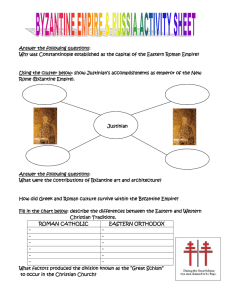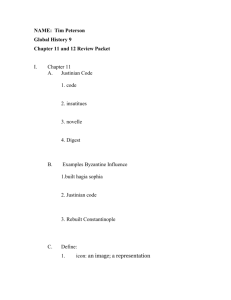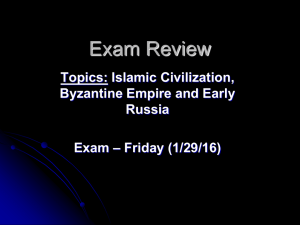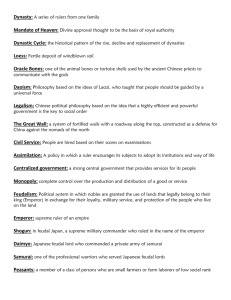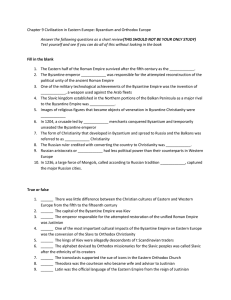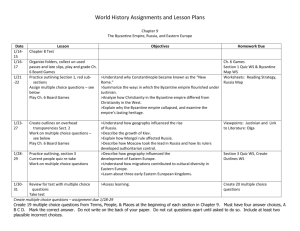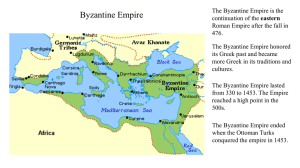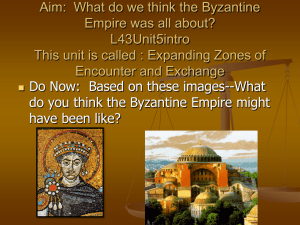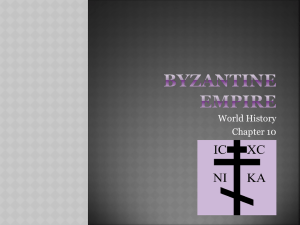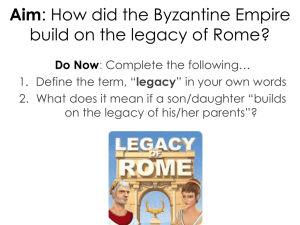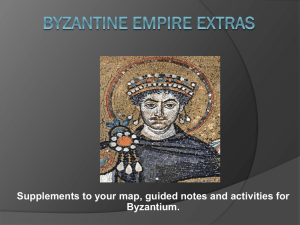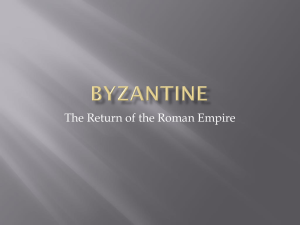Unit 4 Vocabulary- Note cards Islam
advertisement
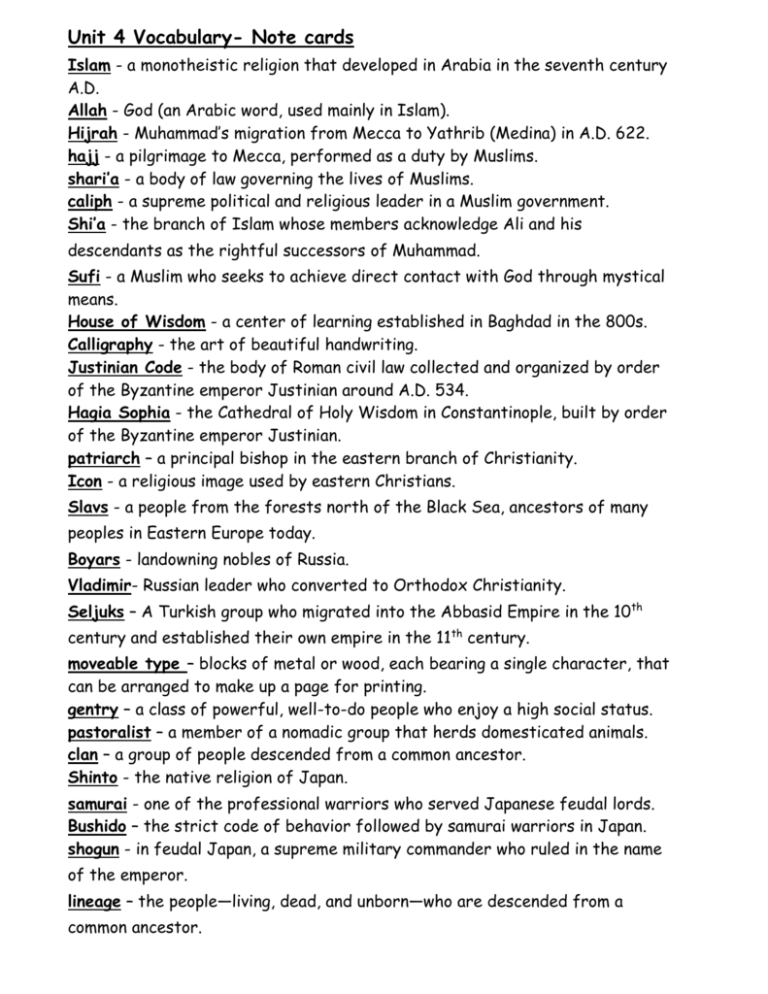
Unit 4 Vocabulary- Note cards Islam - a monotheistic religion that developed in Arabia in the seventh century A.D. Allah - God (an Arabic word, used mainly in Islam). Hijrah - Muhammad’s migration from Mecca to Yathrib (Medina) in A.D. 622. hajj - a pilgrimage to Mecca, performed as a duty by Muslims. shari’a - a body of law governing the lives of Muslims. caliph - a supreme political and religious leader in a Muslim government. Shi’a - the branch of Islam whose members acknowledge Ali and his descendants as the rightful successors of Muhammad. Sufi - a Muslim who seeks to achieve direct contact with God through mystical means. House of Wisdom - a center of learning established in Baghdad in the 800s. Calligraphy - the art of beautiful handwriting. Justinian Code - the body of Roman civil law collected and organized by order of the Byzantine emperor Justinian around A.D. 534. Hagia Sophia - the Cathedral of Holy Wisdom in Constantinople, built by order of the Byzantine emperor Justinian. patriarch – a principal bishop in the eastern branch of Christianity. Icon - a religious image used by eastern Christians. Slavs - a people from the forests north of the Black Sea, ancestors of many peoples in Eastern Europe today. Boyars - landowning nobles of Russia. Vladimir- Russian leader who converted to Orthodox Christianity. Seljuks – A Turkish group who migrated into the Abbasid Empire in the 10th century and established their own empire in the 11th century. moveable type – blocks of metal or wood, each bearing a single character, that can be arranged to make up a page for printing. gentry – a class of powerful, well-to-do people who enjoy a high social status. pastoralist – a member of a nomadic group that herds domesticated animals. clan – a group of people descended from a common ancestor. Shinto - the native religion of Japan. samurai - one of the professional warriors who served Japanese feudal lords. Bushido – the strict code of behavior followed by samurai warriors in Japan. shogun - in feudal Japan, a supreme military commander who ruled in the name of the emperor. lineage – the people—living, dead, and unborn—who are descended from a common ancestor. stateless societies – cultural groups in which authority is shared by lineages of equal power instead of being exercised by a central government. patrilineal - relating to a social system in which family descent and inheritance rights are traced through the father. matrilineal – relating to a social system in which family descent and inheritance rights are traced through the mother. Swahili – an Arabic-influenced Bantu language that is spoken widely in eastern and central Africa. Mutapa - relating to a southern African empire established by Mutota in the 15th century A.D.
